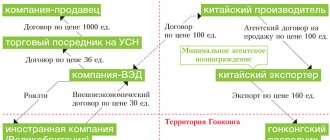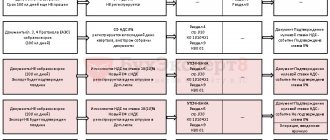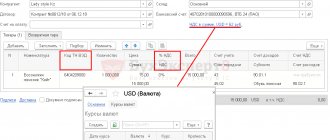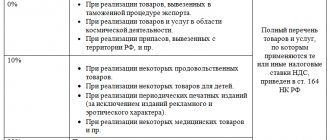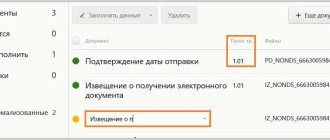Who is a British Resident?
When preliminary consultations with immigration lawyers have been received, the timing of the move and the most suitable type of visa have been determined, it’s time to think about your assets, which also need to be prepared before moving to Britain. And the first step here will be to determine the date after which you will become a tax resident of the United Kingdom with all the responsibilities associated with the new status. The tax year here is counted from April 6 to April 5 of the next calendar year. Those who moved to England for the purpose of long-term residence can count their first tax period from the moment of arrival on the island until 5 April.
There is a misconception that a tax resident is solely a UK citizen or foreigner who has lived on the island for more than 183 days in a tax year. In addition, our compatriots often confuse tax and immigration residents - concepts that are not directly related to each other. While a person's immigration status is clearly determined by the type of UK visa they receive, their tax status is not determined by the visa alone.
Tests to determine tax status in England
To make the process of determining tax status as simple as possible for applicants, in 2013 the British Revenue introduced Tax Residency Tests, consisting of several consecutive parts.
For clarity, the basic principles embedded in the tests can be depicted in the form of a block diagram.
In all tests, the term “year” means the tax year lasting from April 6 to April 5. And the day for calculations is the day spent in the country by the applicant, starting and ending at midnight.
First, we count how many days you have lived in the country. And if you spent 183 days or more in the Kingdom, you are automatically considered a tax resident, and the testing itself ends there.
Automatic non-resident
If the answer is negative, we move on to a group of three questions for assignment of automatic tax non-resident status:
- In the current tax period, you were in the country for less than 16 days, and in the previous 3 tax years, you were considered a UK tax resident for at least 1 year?
- In the current tax period, you were in the country for less than 46 days, but were not a tax resident in the previous 3 tax years?
- Did you work in another country during the current tax period and your stay in the UK that year was less than 91 days?
A positive answer to at least 1 of the questions presented automatically defines you as a tax non-resident of England.
Automatic resident
If you did not answer “Yes” to any of the questions in the previous test, proceed to the remaining two questions to automatically determine your tax resident status:
- Is the UK your only home?
- Do you have a permanent job in the United Kingdom?
If the answers are negative, the applicant undergoes another, this time final, test.
Country Connection Test
Here we will consider 5 types of connections:
- Family: UK resident spouse or minor children.
- Availability of housing to live in Britain. Conditions: own or rented living space, in the current tax period at your disposal for 91 days or more, and at least one night spent there.
- Work in the UK - at least 40 days in the current tax period, with a working day of at least 3 hours.
- “90 Day Rule”: In at least 1 of the 2 previous tax years you were on the island for 90 days or more.
- Country - for those who have been tax resident in the UK for one year out of the previous 3 years. The number of nights spent in the country in the current tax year exceeds the number of nights spent in any other country in the world.
Confirmation of each of the points gives 1 point. Further, depending on the number of connections with England and the number of days spent in the country, you are awarded tax status.
If you were already a UK tax resident and scored 4 out of 5 points, you only need to spend 16 days on the island to become one again. If you were not a resident, but scored 4 points out of 4 possible in this case, then the minimum period of residence in the Kingdom before you become a tax resident will be only 46 days!
Tax residents and non-residents
All individuals, both tax residents and non-residents, pay Russian personal income tax on income from employment, that is, on the basis of an employment contract, since such income is considered to be received from sources in Russia.
For personal income tax purposes, a resident is considered an individual who is actually in Russia for at least 183 calendar days over the next 12 consecutive months. Otherwise, the person is considered a non-resident. These 183 days of stay in Russia are calculated by summing up all calendar days on which the individual was in the Russian Federation during a continuous 12-month period. This period may begin in one calendar year and continue in another calendar year.
You can document the duration of your stay in Russia, as the Russian Ministry of Finance explained in letter No. 03-04-06/78518 dated October 14, 2019:
— a copy of the passport with marks from the border control authorities about crossing the border;
— receipts for hotel stays;
— internal documents of the employer, etc.
In addition, in 2021, a special rule applies: to become a tax resident, it is enough to stay in our country from 90 to 182 calendar days inclusive during the period from 01.01.2020 to 31.12.2020, and at the same time submit to the tax office no later than 30.04. 2021 application in any form indicating your full name and tax identification number.
Why is it so important to determine your tax status on time?
Regardless of whether you are a resident or non-resident, taxes must be paid on absolutely all income received in the UK. However, for UK tax residents there are two basic rules:
- You must report all income received both in the UK and abroad.
- If you are a tax resident, you must report your income for the entire tax year.
This is why it is so important to understand at what point you become a UK tax resident! Under British law, all cash assets received by a foreigner before he is assigned tax resident status are considered his net capital and are not subject to tax. However, this rule does not apply to other tangible assets owned by a future tax resident of England, so a reasonable step would be to first transfer them to cash capital so that there are no unnecessary costs for sales taxes later.
Workers from EAEU countries
On January 1, 2015, the Treaty on the Eurasian Economic Union dated May 29, 2014 (hereinafter referred to as the Treaty) came into force.
And on August 12, 2015, the Treaty on the Accession of the Kyrgyz Republic to the Treaty on the Eurasian Economic Union came into force. Article 73 of the Treaty establishes: a member state of the EAEU imposes personal income tax on the income of residents of another member state of the EAEU in accordance with its tax legislation from the first day of employment at the tax rates provided for tax residents of this state. The personal income tax rate for residents of the Russian Federation is set at 13% (clause 1 of Article 224 of the Tax Code of the Russian Federation). For non-residents, the rate is set at 30% (clause 3 of Article 224 of the Tax Code of the Russian Federation). Thus, from January 1, 2015, income from employment received by citizens of the Republic of Belarus, the Republic of Kazakhstan and the Republic of Armenia is taxed at a rate of 13%, starting from the first day of their work in the territory of the Russian Federation. And from August 12, 2015 - income of citizens of Kyrgyzstan received in connection with paid work in Russia.
Tax benefits and exceptions
There are exceptions to the two rules mentioned above:
- If you moved to the UK during the tax year, then in some cases you may be considered tax resident from the date you moved or the date you found a place to live.
- For new tax residents who are not native residents of England (the so-called non-domiciles), there is a special preferential tax regime based on the principle of remittance - otherwise known as remittance.
Taxation based on remittance
The bottom line is that taxes are levied only on income received in the UK, as well as on income received abroad and imported into the country. All other foreign income is not subject to taxes. The remittance mode at the moment can no longer be used indefinitely, and, in addition, it has a lot of accompanying nuances, which are best discussed with a specialist.
The UK government has perhaps the largest number of agreements with other countries to avoid double taxation - a situation where the same overseas income is taxed by both local and UK tax authorities. Typically, under these agreements, taxes are paid only in the country where they were received.
Salary tax rates
Income from work for hire is mainly a salary, which includes payment for work of a certain complexity and intensity, as well as incentive payments and compensation for work under special conditions or under a special regime. There are two personal income tax rates for such income:
— 13 percent – from the income of a resident of the Russian Federation;
- 30 percent - from the income of a non-resident.
At the same time, for citizens of the EAEU member countries, the rules of Article 73 of the Treaty on the Eurasian Economic Union, signed in Astana on May 29, 2014, apply. They say that citizens of a member state of the EAEU, even if they are non-residents, pay personal income tax in Russia on income from employment at the same rate as residents of Russia, that is, 13 percent.
This rule does not apply to other income of foreigners from EAEU countries working under employment contracts. Amounts not related to income from employment are taxed for such non-residents at a rate of 30 percent. This can be any income that is not wages and does not depend on the conditions for fulfilling work duties - for example, social income. And after a foreigner from the EAEU receives resident status, such income is already subject to a rate of 13 percent (letter of the Ministry of Finance of Russia dated May 14, 2018 No. 03-04-06/32214).
A comprehensive solution for those moving to the UK
As you can see, tax law in England is not as simple as advertised articles say. If you need help at the tax planning stage and during specific activities aimed at reducing the tax burden, you should contact specialists who practice an integrated approach, not focusing only on one narrow task.
This comprehensive method of solving customer issues sets our company apart from many similar companies. The essence of the method is that changing the place of residence is considered as a set of tasks on completely different topics, which, nevertheless, are solved all together. At the same time, other offers on the immigration services market will mostly help you with only one thing: optimizing taxes, preparing assets or processing immigration documents.
The immigration lawyers of our company will do everything to make your move to the UK a pleasant hassle without unplanned and unpleasant costs.
#UK Taxation
#Tax optimization


